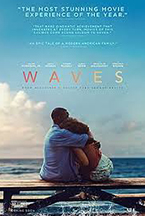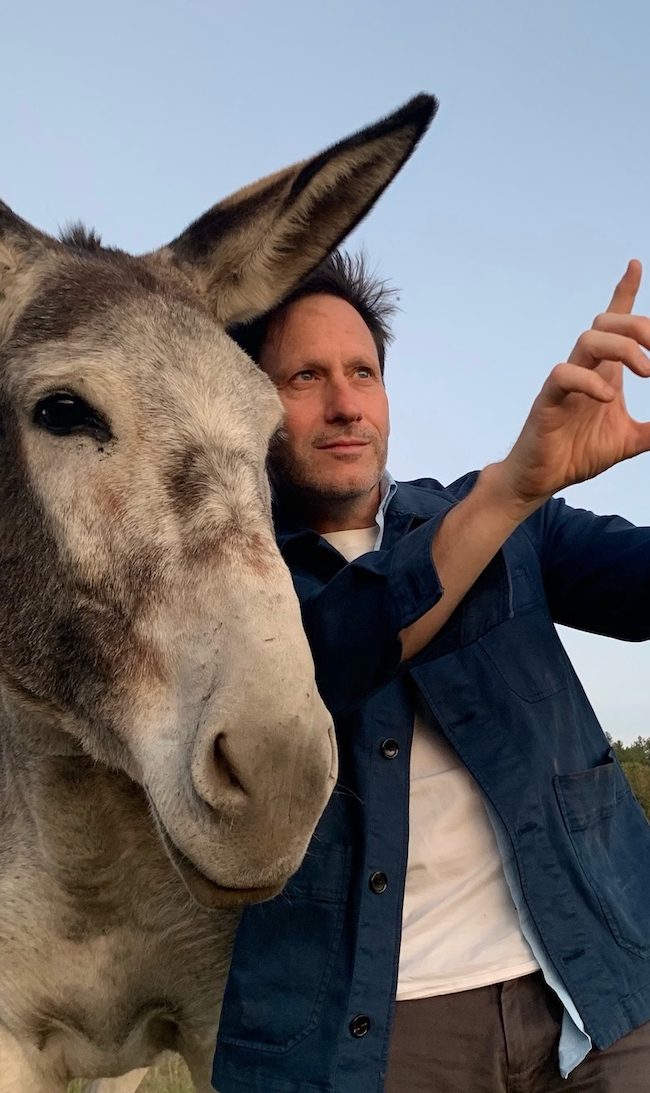
(The 2019 Toronto International Film Festival, or “TIFF” ran September 5-15. Hammer to Nail had boots on the ground with Matt Delman and Chris Reed covering so keep your browser pointed here! Like what you see here on Hammer to Nail? Why not pay just $1.00 per month via Patreon to help keep us going?)
The third feature from American Writer/Director Trey Edward Shults (Krisha, It Comes at Night), Waves is a post-modern epic that feverishly examines the ties that bind a family together. It is an intensely textured and lived in drama, told in two equally profound and complimentary parts. The film offers a grand, messy, heart wrenching story as it follows a family’s slow dissolution.
Waves opens with a swirling panning shot (multiple 360-degree rotations) as we are physically placed in between Tyler (Kelvin Harrison Jr.) and his girlfriend Alexis (Euphoria’s Alexa Demie) as they drive, windows down, on the highway. They blast music, living and loving life — young, careless, and free. Next, we are introduced to his home populated by a domineering, but loving father (Sterling K. Brown), a nurturing step-mother (Renée Elise Goldsberry), and a quietly passionate sister (breakout star Taylor Russell). Each character presents a unique portrait of a caring, strong-willed, complex person.
Tyler is part of the wrestling team and lives a brutally intense/rigid regimen, attempting to balance training, wrestling competitions, school, love and family. His father pushes him to work as hard as possible in order to make the most of his opportunities. This intensity begins to test the limits of Tyler’s control and causes him to unravel. He finds out his girlfriend is pregnant and that she plans on keeping it against his wishes. Then his wrestling dreams are squashed due to a lingering injury that he treats with his father’s opiates. Tyler starts to crack. His actions and disposition worsen as he succumbs to more dangerous and darker self-destructive tendencies of young adulthood. All the while, his family is kept in the dark, attempting to love a raging bull from a distance.
The second half of the film deals with the aftermath of trauma and tragedy. It is a serene depiction of a family attempting to make sense of despair and devastation — a family desperate to repair itself and heal from a deep, festering psychological wound. It is here we see Taylor Russel and Lucas Hedges shine as a newly formed couple overcoming deep personal sadness. While the first half of Waves broods in darkness, intensity, and rage; the second half revels in generosity, gentleness, and longing. An attempt to make sense of loss is an attempt to keep living. A fitting yin to the prior half’s devastating, harrowing and brutal yang.
In terms of the filmmaking craft, Waves fires on all cylinders. In contrast with the dark subject matter, the cinematography feels heavenly; consisting of crisp, glossy and bright silhouettes and sweeping camera movements. The intimate and sensitive performances are made more gripping by the electrifying soundscape from Trent Reznor and Atticus Ross, and an eclectic soundtrack ranging from somber Radiohead and Frank Ocean to blood pumping Kanye West tracks. The narrative of Waves, though at times familiar, is propelled into marvelous displays of emotional sophistication thanks to its luscious craft.
Haunting and bleak, Trey Edward Shults’ Waves is an emphatic portrayal of a family drifting apart. It is a film that rewards patience as it occasionally overwhelms with sound, color, and a sweeping range of emotion. The experience is sprawling, touching, and chaotic; a grand splatter painting to get lost in as it absorbs you with its disordered and ferocious beauty.
Like what you see here on Hammer to Nail? Why not pay just $1.00 per month via Patreon to help keep us going?
– Samuel Levine











